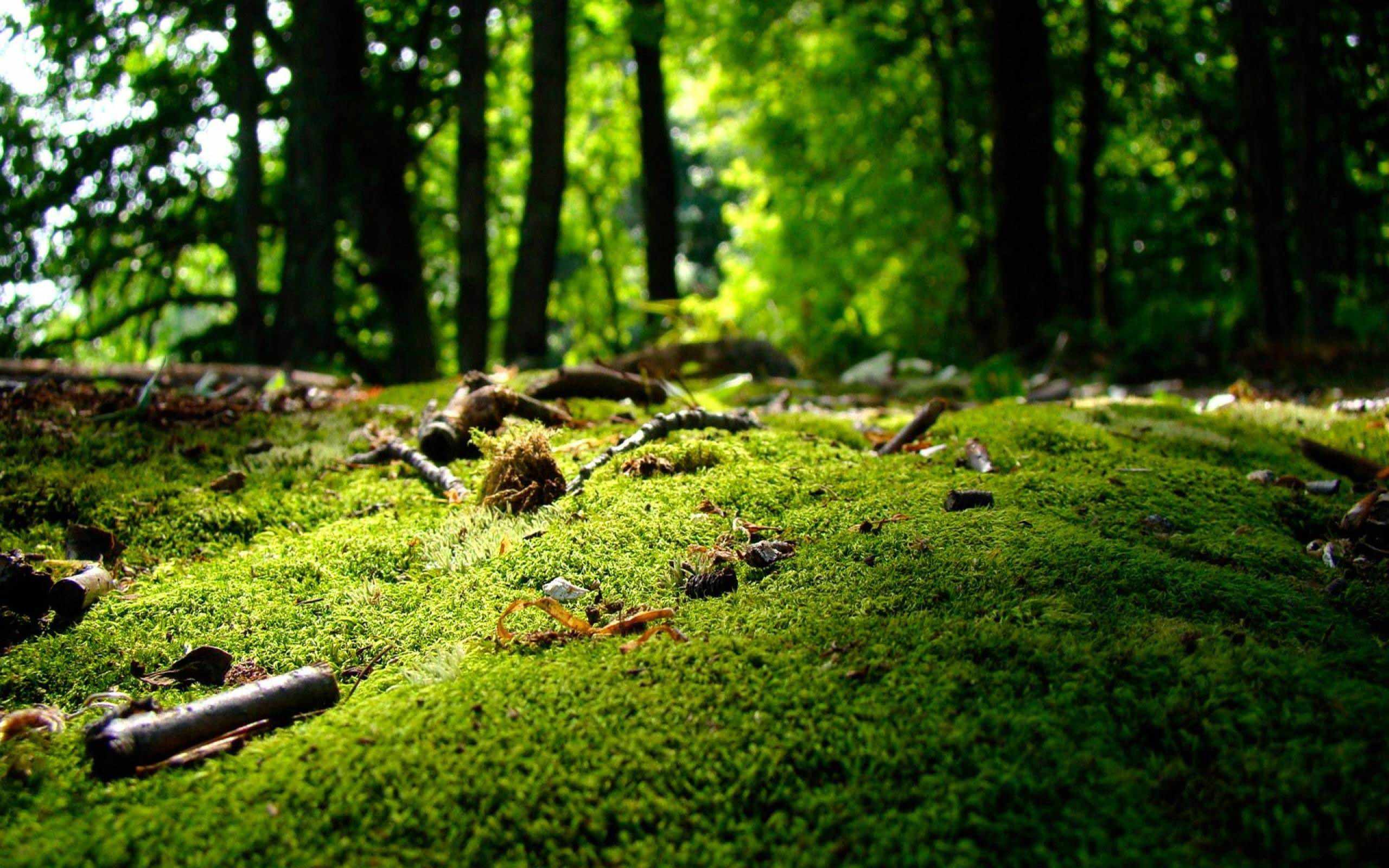Author:
Green Steps
Short summary:
Report on an Erasmus+ seminar in Belgium on "Youth work with brains", in which a systemic constellation according to MIT Professor Otto Scharmer's Theory U shows a vision for a new order of society: The tension between our children and our planet defines the tasks of adults and shows a hopeful way out of a multiple crisis. What strategy is needed to make this transformation possible?

A youth who is afraid of the future and afraid of reality kneels in the center of the room. A teenager from a low-income family stands closely behind her staring into the floor. She feels neglected and asks who would like to take her by the hand. Europe sits at the edge of the room and observes from a distance; self-critically, she states that she is only big and strong in theory. Youth work can hardly withstand the pressure and has a society behind it that angrily shouts, "Do something about this mess!" Non-formal education is looking for a way out of the crisis. The "highest possibility of the system" recommends to stop permanently from running without humane direction. Mother Earth gets on a stage and moans over the heads of the people: "You are destroying me!"
The mood is depressing. I am only taking notes of this sad spectacle, but I have goose bumps and it brings tears to my eyes. What's happening? Dirk Adams, a German coach with a focus on educational issues moderates a seminar on the future of open child and youth work (OKJA) and has invited event participants to map out the current situation. The system is oppressive. The seminar participants, who do youth work in different roles in five European countries, know the reality. However, people tend to suppress it. In this picture, it hits us with full force. There is no way to escape.
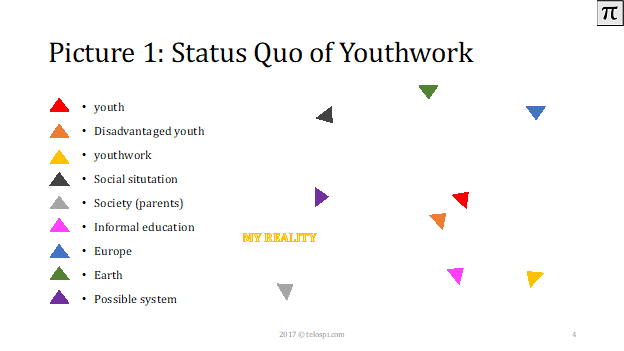
The presence of youth work shows us that we live in different realities and our actions are not aligned. Everyone looks in a different direction, connections do not exist or are weak. Our positions in space are not aligned. There is a kind of chaos that is not immediately noticeable because of the order of the market. Everyone has their own advantage in focus and, moreover, forgets about the weakest of the weak. The picture reflects a mindset that not only weakens others, but ultimately the earth itself and will lead to our species’ demise. Humanity is in a deep crisis of consciousness, not only in Europe.
A European Community study, just released Oct. 13, shows for 32 European countries the impact Covid-19 has had on adolescents' mental health. A staff member from our host, the Belgium youth work agency, presents the key messages: the mental health situation of our youth was already critical before the pandemic, but has worsened worryingly during March 2020 and March 2022. We are in a red alert situation, but don’t notice it. This is nothing new for Green Steps. From our point of view, Covid-19 has only made existing problems more visible and has surfaced in particular in the health and education sectors. For a number of years, we - along with many other organizations - have been trying to draw attention to the Nature Deficit Disorder linking the holistic health condition of individuals and the society with the progressive alienation from nature and to introduce solutions.
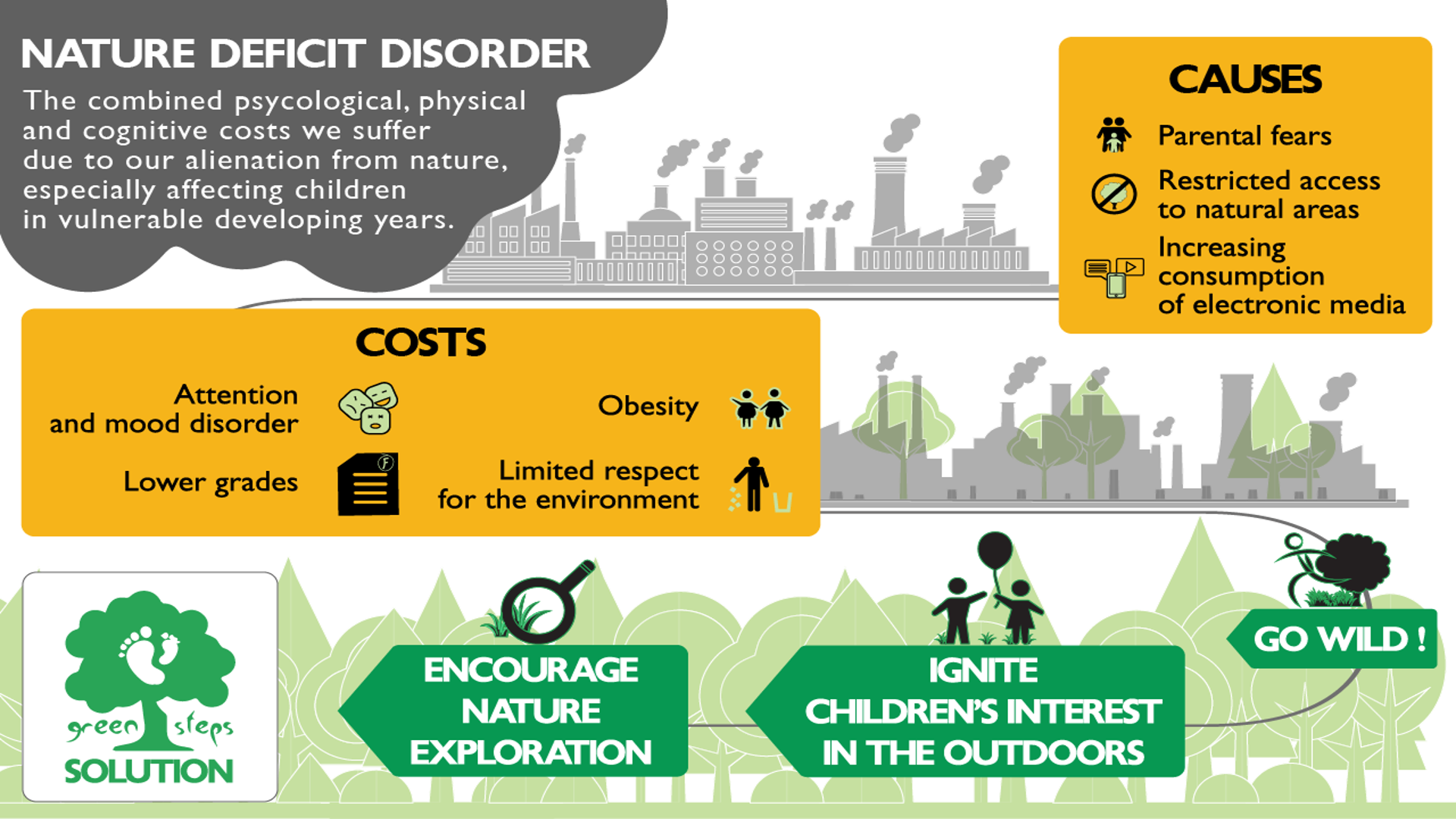
The Mobile Campus 4.0 pilot project is one such solution that we have been developing for two years in St. Pölten: partially standardized routes that allow children and young people in particular to experience the local ecosystem through play. By experiencing the space we live in, one thinks one is only learning about natural history, but it is obvious that experiential and repeated engagement with the natural environment strengthens not only systemic understanding of the environment, but also deeper systemic understanding of the inhabitants of that space, as well as the relationship to myself. This learning psychology tripartite was named Triple Focus by Daniel Goleman and should serve as the basis for a 21st century curriculum. We successfully applied this concept in an Erasmus+ youth exchange in summer 2021 with 40 young people from seven EU countries and turned it into a two-part documentary.
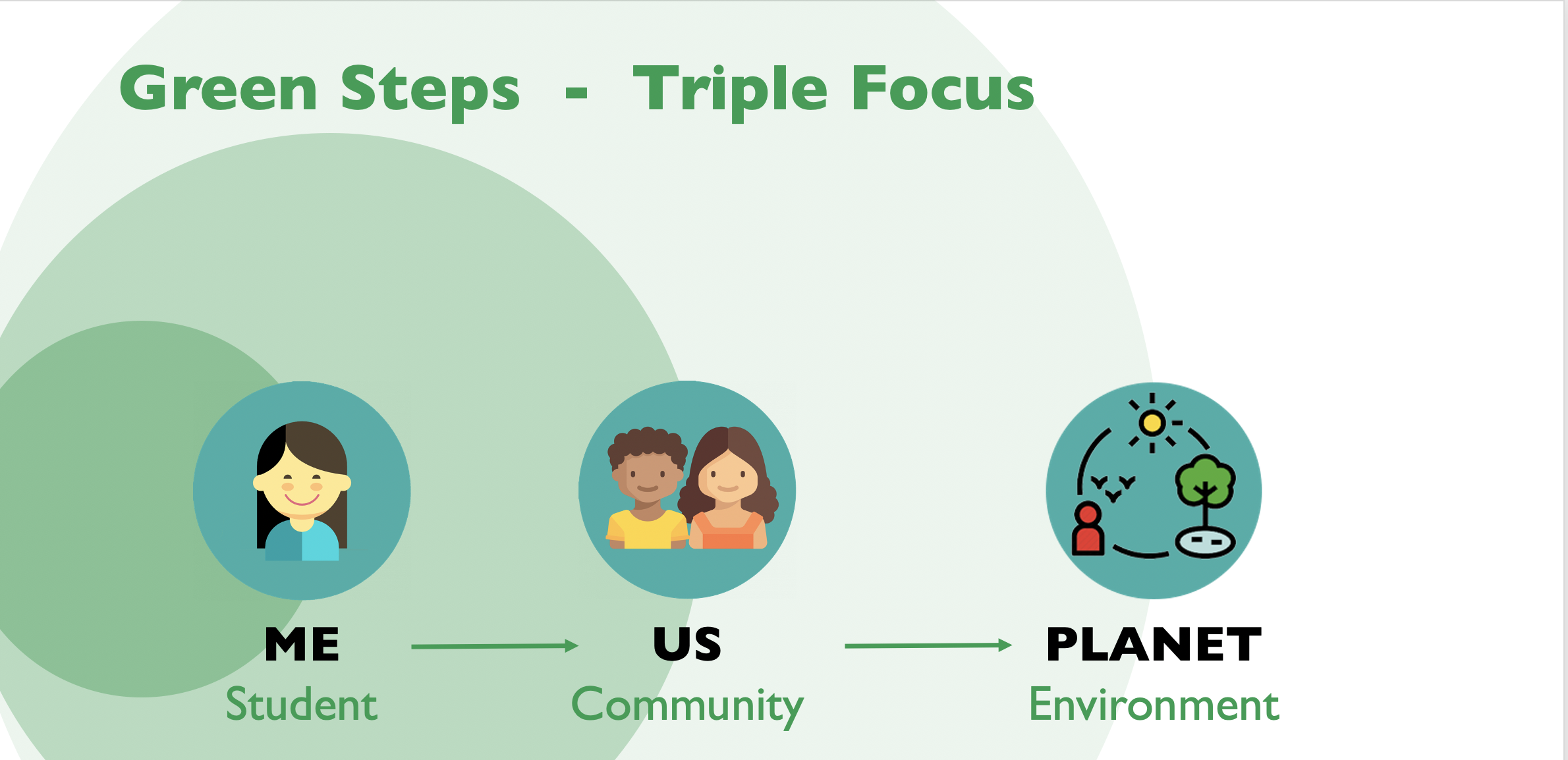
I repeatedly notice that in education as well as in social work vertical thinking is an obstacle to implement holistic strategies. Traditional representatives of educational institutions see their scope of action "indoors" and often only in STEM or only in language acquisition. Social work, on the other hand, claims subjects such as inclusion, nonviolent communication, and cultural understanding. While Green Steps facilitates nature experiences, we do not see ourselves as just nature educators, but rather activate nature for multi-layered learning that is not contradictory but complementary to traditional education and social work. The overall goal is to adjust our self-perception to reality and to eliminate the separation between humans and nature brought about by the Axial Age.
Environmental educators are forming a new professional group in some countries, including Austria, which reflects a trend to safeguard oneself against other professional groups: the teachers and institutions of formal education and the teachers and institutions of informal education, which have no relation to nature. We are convinced that nature connection has to be a new bracket between all levels of education and health care; therefore we see ourselves in a horizontal, mediating role and invite to integrate this new foundation of learning and living together into your work - no matter where you started out from.
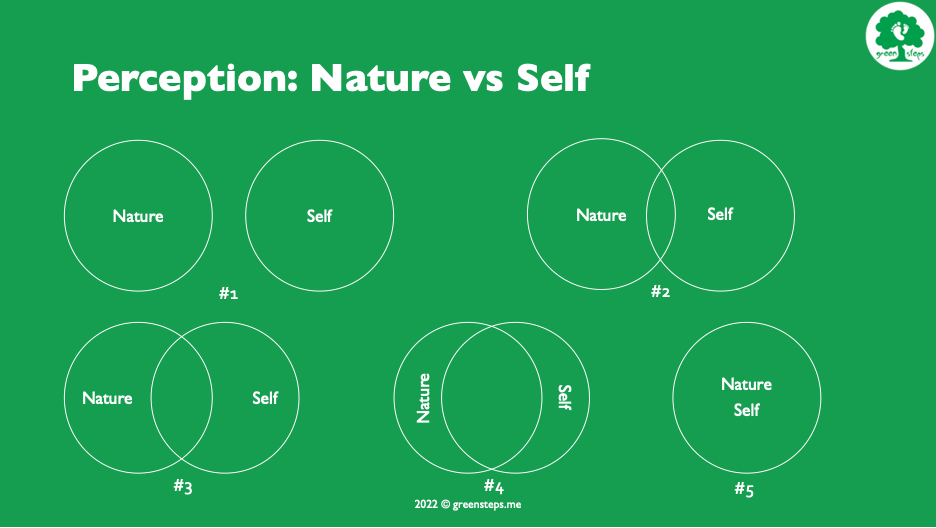
Back to the event in Belgium, where our facilitator Dirk Adams invites us to once again become aware of the space and position of our own bodies and to change accordingly for the "best possible future of open child and youth work." MIT professor Otto Scharma calls this process "pre-sencing," sensing a better version of the present. The youth at the center stands up, takes a few steps, and looks up at the earth: "Finally, I can have ideas again." Society moves next to the youth and tells the disadvantaged youth, "I'm strong as hell, and I'm sorry I forgot about you." The disadvantaged youth barely moves and replies that she wants society and youth work, to hold her up. The youth work stands protectively next to the disadvantaged youth and feels a strong connection with the young people and society. Europe puts itself between the current social situation and society, saying, "I am inclusive and I connect." The current social situation recognizes the harshness of reality, but energetically stretches out its arms toward Earth and Europe. Earth shouts into space, "Notice me, protect me, you need me! The highest possibility of the system remains close to earth and advises to take a break and only move on when we consciously save earth.
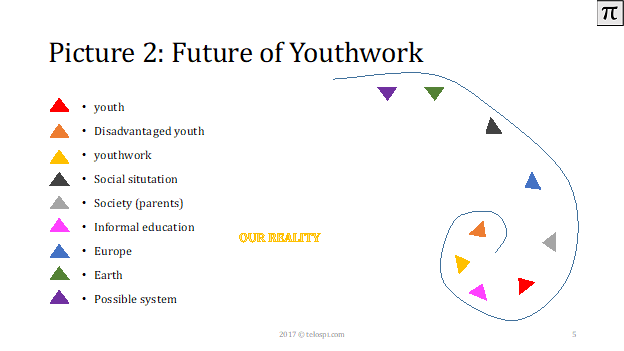
The second picture on the future of open youth work clearly shows that - if we subordinate ourselves to a common, meaningful vision - we automatically find our place in a larger order. All the roles involved in the picture line up next to each other like pearls on a string in a structure guided by an invisible hand. The young person, who in reality is often focused on himself, leaves the center of the room, places himself next to society and leaves the central role to the disadvantaged young people: it is about them that youth work should essentially be about. Youth work places itself next to them. Informal education supports youth work and in an ever growing spiral all elements of this picture find their place to create an energy field between earth and child.
The form of this arrangement is no longer chaos, but a natural order, as it cannot be planned by a human being. The systemic organizational developer recognizes the golden ratio as well as the Spiral Dynamics thesis established by Don E. Becks. The evolutionary psychologist sees a blueprint for a TEAL society that organizes itself by sharing a vision and making everyone aware of his or her responsibility and role. The Montessori educator can recall reading basic literature and understands a sentence again: If life owed its survival only to the struggle of the strong, the species would perish. So, the real reason, the main factor of the survival of the species, is the love that the adults feel for their young. [Maria Montessori, The Absorbent Mind]
In the second image, we notice that society is given an above-average role. This reflects my perception that parents and formal education were already missing as roles in the first picture. All these elements are now united in the role of society, which until now has apathetically watched the next generation and earth being destroyed. Open child and youth work is important, no question, but in a systemic view of the problems we are facing, it quickly becomes clear that youth work can only deal with symptoms and not the causes.
Parents are in a classic prisoner's dilemma: either they submit to the ever-increasing competition in the labor market and prepare their children for it by exposing them to the ever-increasing demands of formal education. Teachers submit to this competition or risk losing their job. The weakest members of society are deprived of their childhood as the third developmental-psychological phase of learning is squeezed into the first and second, and humans in general have to compete more and more with machines - instead of them making everyone's life easier and better.
.png)
Particularly in relation to formal education, informal education must ask itself what leverage it can actually apply. Young students are busy with school for 50 hours or more every week, so there is hardly any time to participate in informal activities. If they don't want to lose touch, they work on their assignments on the weekends, just like my 14-year-old daughter. But it's not just that the volume of information to be mastered is constantly increasing, it's also the speed with which it affects young people. In the past, adolescents, whose brains and bodies are undergoing many changes, were given more time to pause and look ahead. We are depriving our youth of any pause and orientation by plunging them into digital nihilism. Indeed, we need to stop and ask ourselves what the goal of informal and formal education is and find a holistic answer before we blindly rush on.
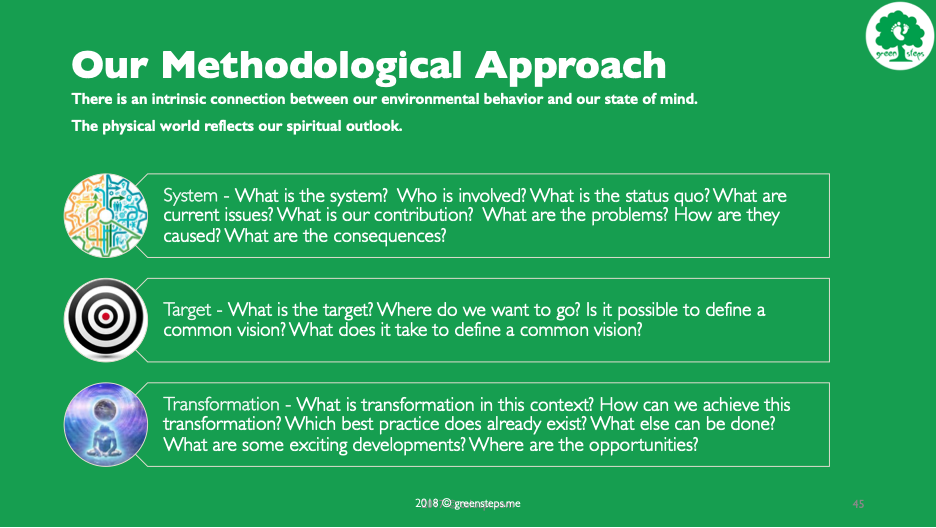
Hope for our species persists as we subordinate meaningless individual fantasies to a meaningful collective dream of the survival of the next generation. In the words of neurologist Viktor Frankl: For success, like happiness, cannot be pursued; it must ensue, as personal dedication to a cause greater than oneself or as the by-product of one's surrender to a person other than oneself. The joint effort of a growing group of responsible adults will make a positive future of today's children and youth possible. These adults must be found in all strata of society, not only within the open work with children and youth.
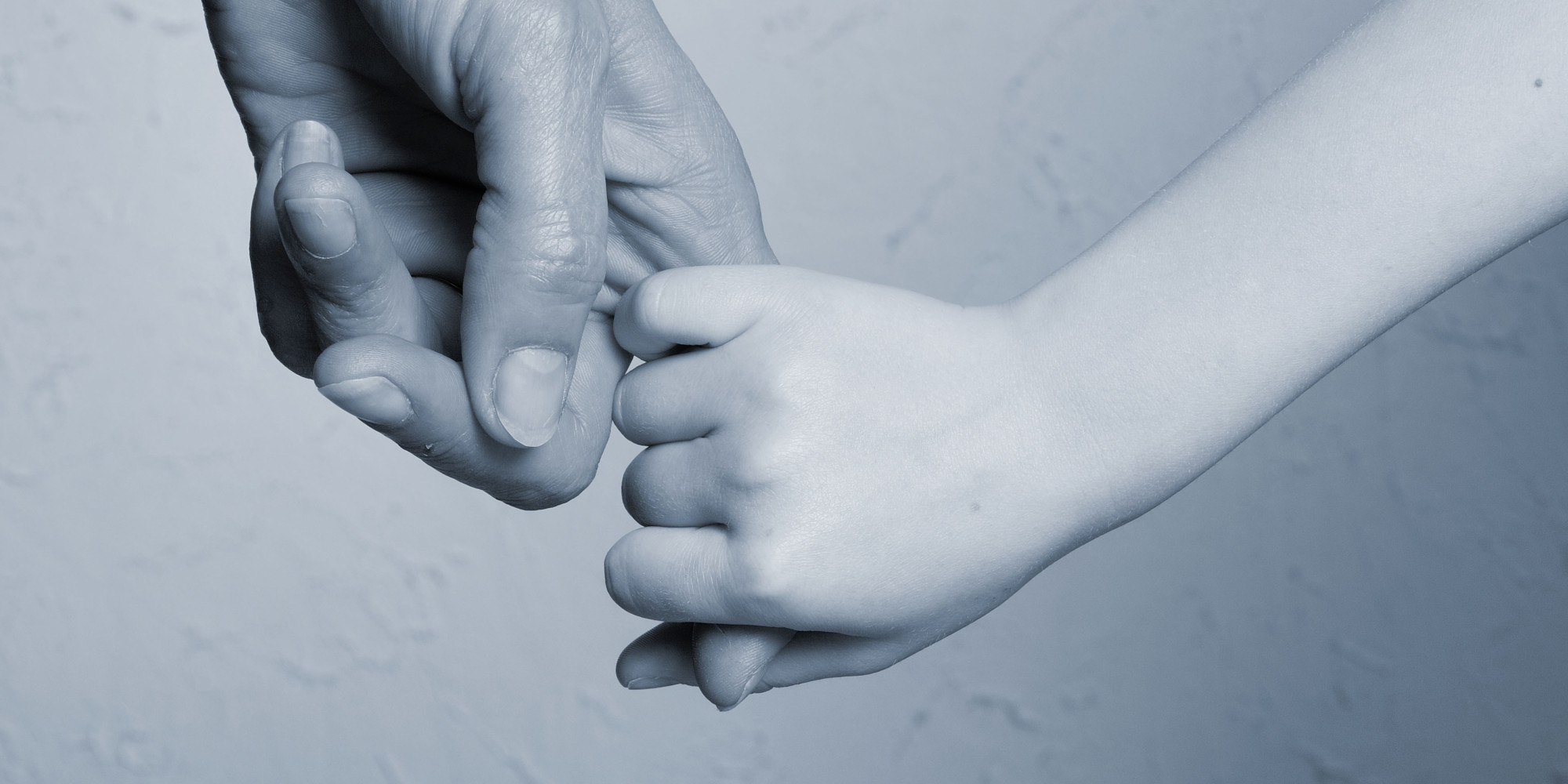
Continue reading:
EU: The Impact of COVID-19 On the Mental Health of Young People
UNICEF: Impact of COVID on Mental Health of Youth USD 390 Billion annually
Green Steps, Nature Deficit Disorder
Green Steps, Nature Deficit Disorder – A Secondary Symptom of Lockdown
Green Steps, Mental Health Benefits oft he Mobile Campus
Daniel Golemen, Triple Focus – A New Approach to Education
Hoopoe Summit 2021, Erasmus+ Jugendbegegnung im Nationalpark Neusiedlersee
Green Steps documentary, Learning What Matters. Now.
Frederic Laloux, Reinventing Organizations
Axial Age
Don E. Beck, Spiral Dynamics
Maria Montessori, The Absorbent Mind
On the Education Crisis and the Prisoner’s Dilemma
Sarah-Jayne Blakemore, Inventing Ourselves – The Secret Life of the Teenage Brain
Mingong, The Anatomy of Democratic Destructiveness




